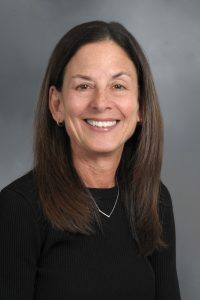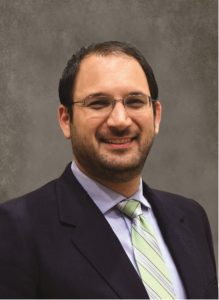By Daniel Dunaief
If an amusement park suddenly changed the criteria that would allow visitors to ride on a roller coaster or log flume, the number of potential customers would suddenly climb.
The same holds true for the number of people whom doctors are diagnosing with autism.
Over time, health care professionals have changed the definition of autism, recognizing the heterogeneous nature of a diagnosis that is often different from one individual to the next.

Recently, Robert F. Kennedy Jr., the head of Health and Human Services, suggested that he planned to share a detailed analysis of autism by this September to explain the increase in the number of people who receive such a diagnosis.
Based on numerous reports, Kennedy indicated he would present research findings at the end of the summer that explains why and how the number of cases of autism and other childhood chronic diseases has risen.
“The biggest, most widely agreed reason for the increase in numbers is the broadening of the diagnostic criteria,” said Debra Reicher, Clinical Psychologist and Assistant Professor at the Renaissance School of Medicine at Stony Brook University.
Over her 35 years in the field of autism, Reicher said the definition of autism has changed.
“We are getting better at diagnosing people at the higher end of the spectrum,” she said.
When Reicher started in the field, about 80 percent of those diagnosed with autism also had an intellectual developmental disorder or cognitive delay. That is currently closer to 40 percent.
“We are getting better at identifying people who have good cognitive skills,” and who have autism, Reicher added.
Over time, the male-female gap has also narrowed. Historically, boys and men were more likely to receive an autism diagnosis.
Clinicians are getting better at understanding the presentation of autism in females, who have different symptoms that can fly under the radar.
Girls are more likely to “mask or camouflage” autism, which physicians might miss, Reicher added.

People are also more aware of autism as a diagnosis.
“Young parents are tracking their child’s development and are asking their pediatricians questions,” Reicher said. That leads to earlier detection.
On a smaller but not insignificant level, some studies suggest that older ages of fathers can also contribute to autism.
“Advanced paternal age is a statistically significant predicator of increased rates of autism,” said Matthew Lerner, Research Associate Professor and Research Director of the Autism Initiative at Stony Brook University.
Premature babies, who are much more likely to survive today than they were even a few decades ago, can also receive an autism diagnosis as they develop.
More support
At the same time, health systems are not only more actively screening for autism, but they are also providing more support and benefits.
By offering people and their families services, these health care systems are providing people with autism care, making a diagnosis a potential starting point for more care.
“If somebody was diagnosed with autism in the 1980s, there weren’t a lot of things that folks could do,” said Lerner, who is also Associate Professor and Leader of the Life Course Outcomes Program Area at the AJ Drexel Autism Institute at Drexel University.
Some research also suggests a correlation between environmental exposure or pollutants and the incidence of the condition.
Researchers, however, caution that a correlation doesn’t necessarily indicate a causation, which is a significant challenge in the world of science and medicine.
A correlation may or may not be relevant in the context of a disease or the treatment for it. Researchers who can conclude based on larger and statistically significant samples a cause between something like environmental exposure and a disease can reduce the likelihood of a condition.
To be sure, despite considerable chatter through online forums, the Internet and people who have limited or no medical expertise, people in the autism field have not seen any evidence that vaccines for diseases like measles have any connection with autism.
The studies that were done in the 90s and early 2000s that suggested a potential link between autism and vaccines were biased and were eventually retracted in a journal, Reicher said.
“Research shows no difference in the rates of autism between vaccinated and unvaccinated children,” she added.
Some new or expectant mothers are hesitating to give their children a measles, mumps and rubella shot.
Reicher urges parents to study the issue carefully and to provide the kind of protection that will prevent the spread of infectious diseases and the lifelong consequences of contracting measles.
Reicher suggested that some of the fear comes from the fact that MMR is given around the time physicians recognize the symptoms of autism.
“With vaccines, there’s no evidence to support” a connection with autism, Reicher added.
New research
Researchers and clinicians welcomed the possibility of new studies that might help the heterogeneous community of people with autism.
New work done with “rigorous science that have reputable approaches and ask meaningful questions” could be “fantastic” for people with autism and their support networks, Lerner said.
To be sure, Lerner doesn’t anticipate any major findings in the development of autism, particularly in the context of vaccines or any other speculation that researchers have tested for decades.
The notion that significant studies from around the world that thousands of researchers conducted over the course of decades would suddenly be overturned in the next four months “seems highly implausible,” he said.
Lerner hopes that any focus on autism research that the current administration conducts respects and adheres to the level of rigor necessary to make any changes in diagnosis, treatment or potential causes.
At this point, Reicher, who has spent decades working with a wide range of people with autism, has seen many people with autism live “wonderful, successful, fulfilling lives.” People with autism are “making huge contributions to the arts, to science and to everything in between.”
Understanding and enhancing an awareness of autism through well-documented and rigorous research could help some people with the diagnosis, although a one-size-fits-all approach won’t work for a larger population that has different symptoms and needs.





